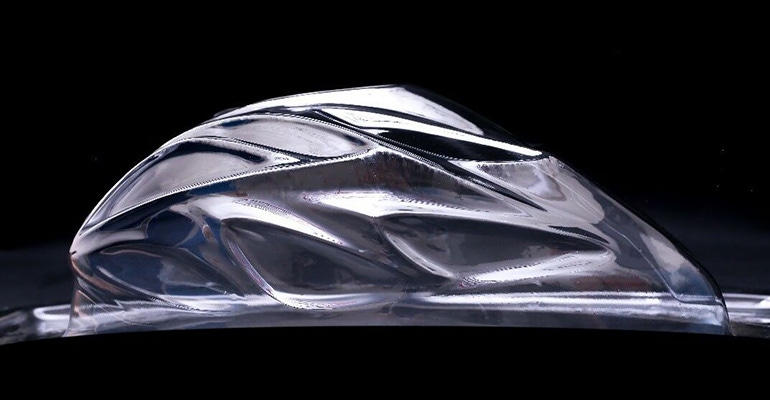Röhm Develops Thermoformable PLA-Based Material
The thermoformable film meets US, EU, and Chinese requirements for food-contact packaging.
July 14, 2022

Methacrylate specialist Röhm announced today that it is developing thermoformable film using renewable raw materials. Under the provisional name of Europlex Film LJ 21123/123, the new product is a PLA-based transparent, high-gloss, and stable film. The film has not been biaxially stretched, unlike many other PLA-based films, and, therefore, can be used in thermoforming processes, said Röhm.
Production of the raw material generates low CO2 emissions, making the film a more climate-friendly alternative to petroleum-based products, added the materials supplier, which has its global headquarters in Darmstadt, Germany.
The new material contributes to Röhm’s commitment to achieve climate-neutral production by 2050. It plans to reach this goal through the development of sustainable products and technologies as well as the decarbonization of raw materials.
Europlex Film LJ 21123/123 consists of certified, compostable PLA that meets the requirements for industrial composting as defined in the ASTM D6400 and EN 13432 standards.
Röhm outlined the property profile of the film as follows:
bio-based and industrially compostable
thermoformable at 55°C
highly transparent with >92% light transmittance
high tensile strength and flexibility
suitable for stamping and cutting
printable
The material meets the requirements for food-contact packaging in the European Union (EU Regulation 10/2011), United States (FDA 21 CFR), and China (GB 9685-2016). Potential applications include viewing windows on cardboard packaging or aesthetically demanding thermoformed packaging. The film also is suited for the production of decorative films for in-mold decoration processes, or printed products such as graphic panels.
“Our experience in film extrusion enables us to produce PLA films with high optical quality,” emphasized Herbert Groothues, Head of Film and Extrusion Development.
The raw material is derived from non-genetically modified sugarcane, the supplier of which has implemented an environment management system in compliance with ISO 14001:2015 that is certified by Bonsucro, an association of producers and processors of sugarcane who have agreed on globally recognized standards for social, ecological, and economic sustainability.
Upon request, development samples of the film can be provided in thicknesses from 53 to 500 µm and widths of 200 mm. The full datasheet with technical specifications and approvals is also available upon request.
You May Also Like


